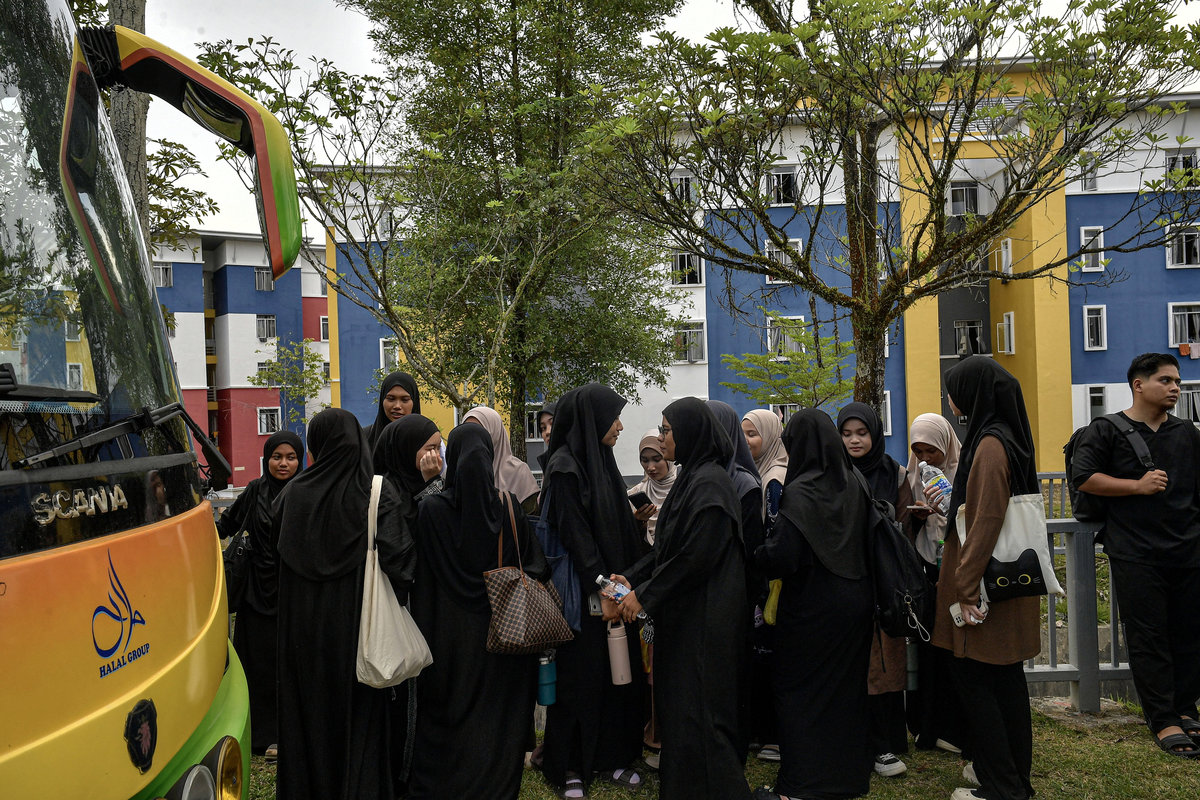KUALA LUMPUR: The proposal to restrict university student excursions to daytime travel should be carefully considered following the tragic bus accident that claimed the lives of 15 Universiti Pendidikan Sultan Idris (UPSI) students last Monday.
Dr. Nurrul Hafeezah Sahak, a lecturer from the Faculty of Science and Technology, Universiti Kebangsaan Malaysia (UKM), said this measure would reduce the risk of accidents and prevent a recurrence of the UPSI incident.
“This is because visibility at night is limited due to poor lighting, and drivers are prone to drowsiness as nighttime is naturally a time for the body to rest,“ she told Bernama today.
She was commenting on Higher Education Minister Datuk Seri Dr. Zambry Abd Kadir’s statement, whereby he was reported to have said that his ministry had received various recommendations, including the proposal that university student trips only be conducted during the day.
Yesterday, media also reported that 28 passengers, including 13 Universiti Malaysia Pahang Al-Sultan Abdullah (UMPSA) students, survived after the bus they were on rear-ended a trailer at Kilometer 161.5 of the East Coast Expressway (LPT), eastbound, on Monday midnight.
However, the road safety expert added that, in addition to standard operating procedures (SOPs), public awareness in choosing public transport companies with good safety records also needs to be enhanced.
She noted that transport companies with good safety records have drivers who are trained to adhere to road and traffic rules and laws, and they consistently ensure vehicles are in good condition for every journey.
“Furthermore, the importance of wearing seatbelts must be emphasized to reduce the risk of serious injuries during accidents,“ she said.
Meanwhile, Principal Research Fellow for the Smart Driving Research Center, Associate Professor Dr. Kamarudin Ambak, stated that bus companies must ensure drivers have a high level of safety awareness and treat passengers as if they were their own family.
“Students cannot control it because they are bound by schedules and bus journeys... sometimes students have reminded drivers who are driving aggressively, but some are indifferent or just listen without paying full attention.
“Perhaps they want to shorten the travel time because they might have other ‘trips,‘ especially for chartered buses. These issues need to be re-examined, not just at the higher education institution (IPT) level, but also within bus management in public transport,“ he said.
The lecturer from the Department of Engineering, Faculty of Civil Engineering and Built Environment, Universiti Tun Hussein Onn Malaysia (UTHM), also recommended that drivers undertaking long journeys get sufficient rest, as driving takes a long time.
“Previously, there was a co-pilot or second driver, but now most companies do not provide one, so there’s only one driver... imagine if the journey is quite long, they might be exhausted, especially if they had other trips before, which affects the driver’s energy management or preparation to operate the bus more safely,“ he said.
Associate Professor Dr. Ng Choy Peng, a lecturer from the Faculty of Engineering, National Defence University, added that attention should be given to the competency level of bus drivers and appropriate working hours for drivers on long journeys.
“I sincerely hope that the authorities can enforce laws to control the operating hours of tour buses, working hours for commercial bus drivers, and also ensure that bus drivers are not aggressive and always comply with road laws,“ she said.
She also urged strict action by the Road Transport Department in handling driving licenses for commercial drivers, making them more stringent, especially since the bus driver involved in the student tragedy was found to have 18 summonses, 13 of which were for speeding offences.
“We have a demerit system, but it seems as though this system is not enforced. If this driver had so many summonses, his driving license should have been suspended a long time ago,“ she said.









